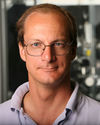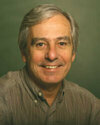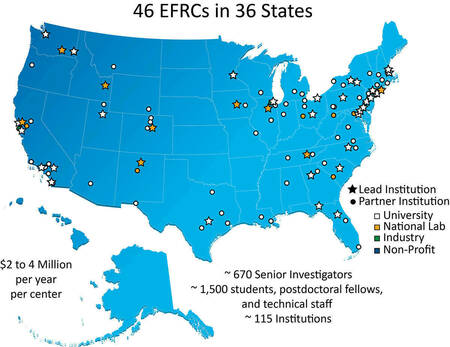Understanding an EFRC
What does it take to lead an Energy Frontier Research Center (EFRC)?
What goes into it and what are the expected outcomes?
Am I prepared enough to lead a proposal or participate as a sub-recipient?
These are just a few of the questions that will be answered during an open forum and panel discussion featuring faculty experts who have already led or participated in an EFRC. Members of Notre Dame Research and ND Energy will also be on hand to discuss pre-award and post-award support services and answer questions related specifically to large center grant proposals and project management. There will be ample time for open discussion and questions following formal remarks.
All interested faculty are encouraged to attend to gain a deeper understanding of an EFRC and to become better prepared for the next DOE call, which is anticipated in early 2022.
Panelists will include:
 |
Peter C. Burns Massman Professor of Civil and Environmental Engineering and Earth Sciences, Director of ND Energy, former director of the Materials Science of Actinides (MSA) EFRC (2009-2018, $20M |
 |
Jay LaVerne Professional Specialist of Notre Dame Radiation Laboratory and Department of Physics, key personnel of Interfacial Dynamics in Radioactive Environments and Materials (IDREAM) EFRC (Lead Institution, Pacific Northwest National Laboratory, 2016-current), senior investigator of Molten Salts in Extreme Environments (MSEE) EFRC (Lead Institution, Brookhaven National Laboratory, 2018-current) |
Research staff will include:
- Heather Boyd, Research Development Program Director, Notre Dame Research
- David Ross, Senior Director of Pre-Award Services, Notre Dame Research
- Subhash L. Shinde, Associate Director of ND Energy
- Ginger E. Sigmon, Managing Director of ND Energy, former Managing Director of Materials Science of Actinides, EFRC
Reception
4:30-5:00 p.m.
Attendees are invited to stay after the forum for a reception from 4:30 to 5:00 p.m. to continue the dialogue and enjoy some holiday festivities and fellowship. Light refreshments and adult beverages will be served. Please RSVP by December 14 to help us ensure we have ample sustenance for all to enjoy.
About EFRC

The EFRC program was started in 2009 by the U.S. Department of Energy (DOE) Office of Basic Energy Sciences (BES) as a means for addressing some of the toughest scientific challenges preventing advances in energy technologies in the 21st Century. Since its inception, there have been 88 EFRCs of which 41 are currently active in 34 states across the U.S. (see map below). These centers use a unique approach of bringing together creative, multi-disciplinary teams to accelerate high-risk, high-reward fundamental research that provides a strong scientific basis for transformative energy technologies of the future. Click here for descriptions of the centers.
This event is sponsored by ND Energy and Notre Dame Research.